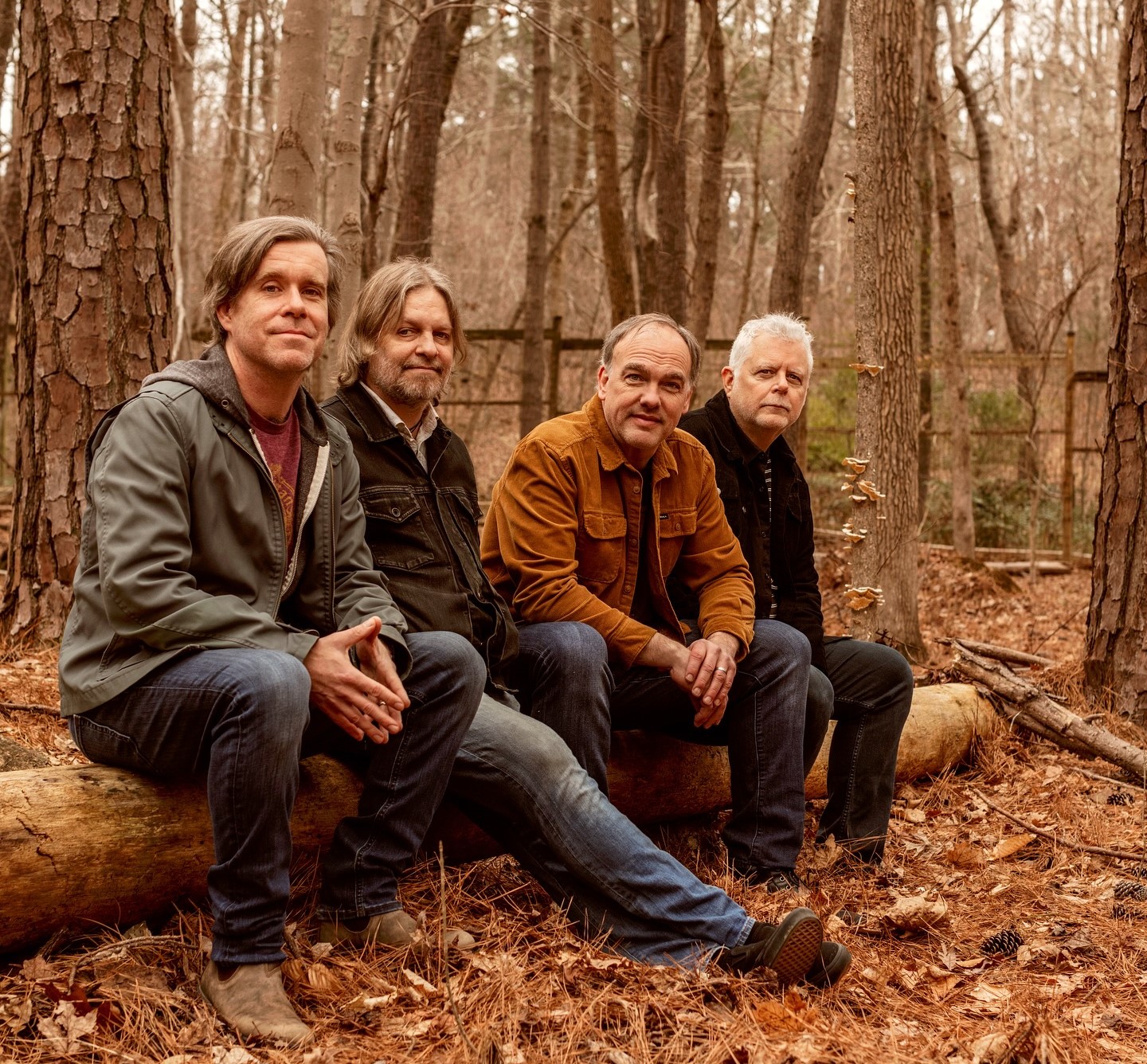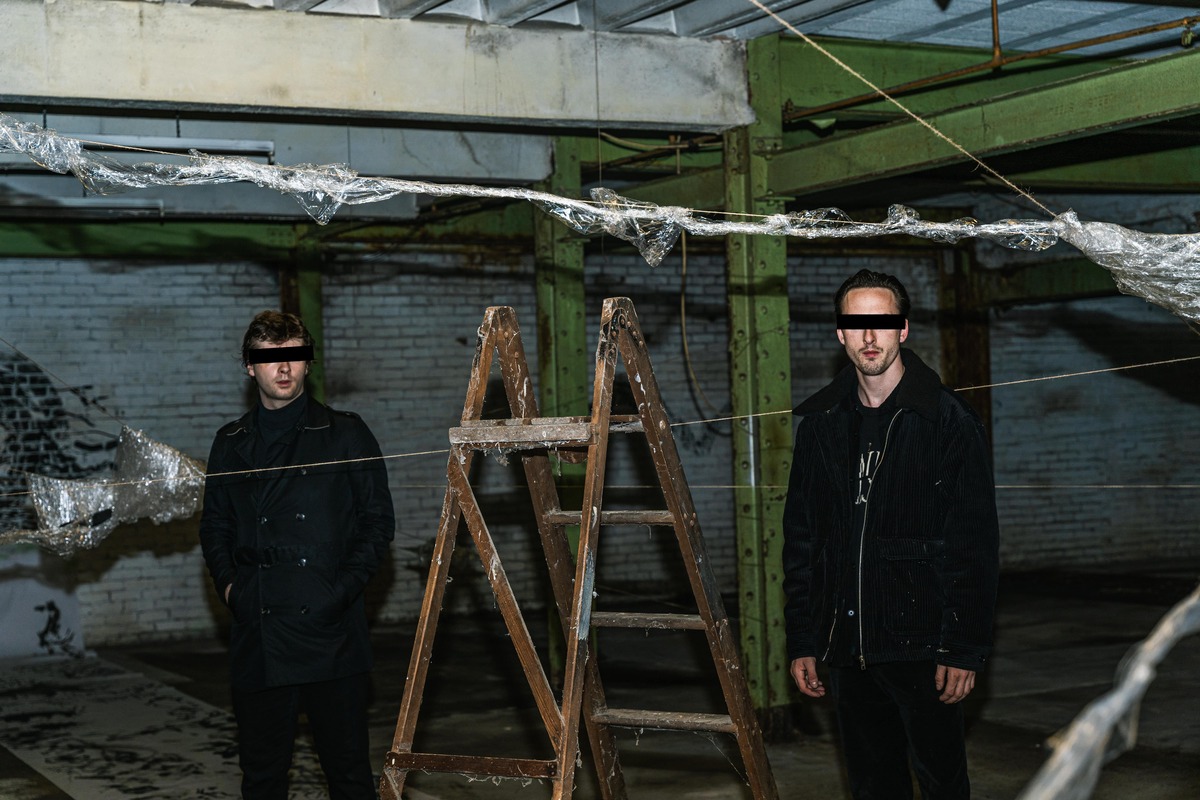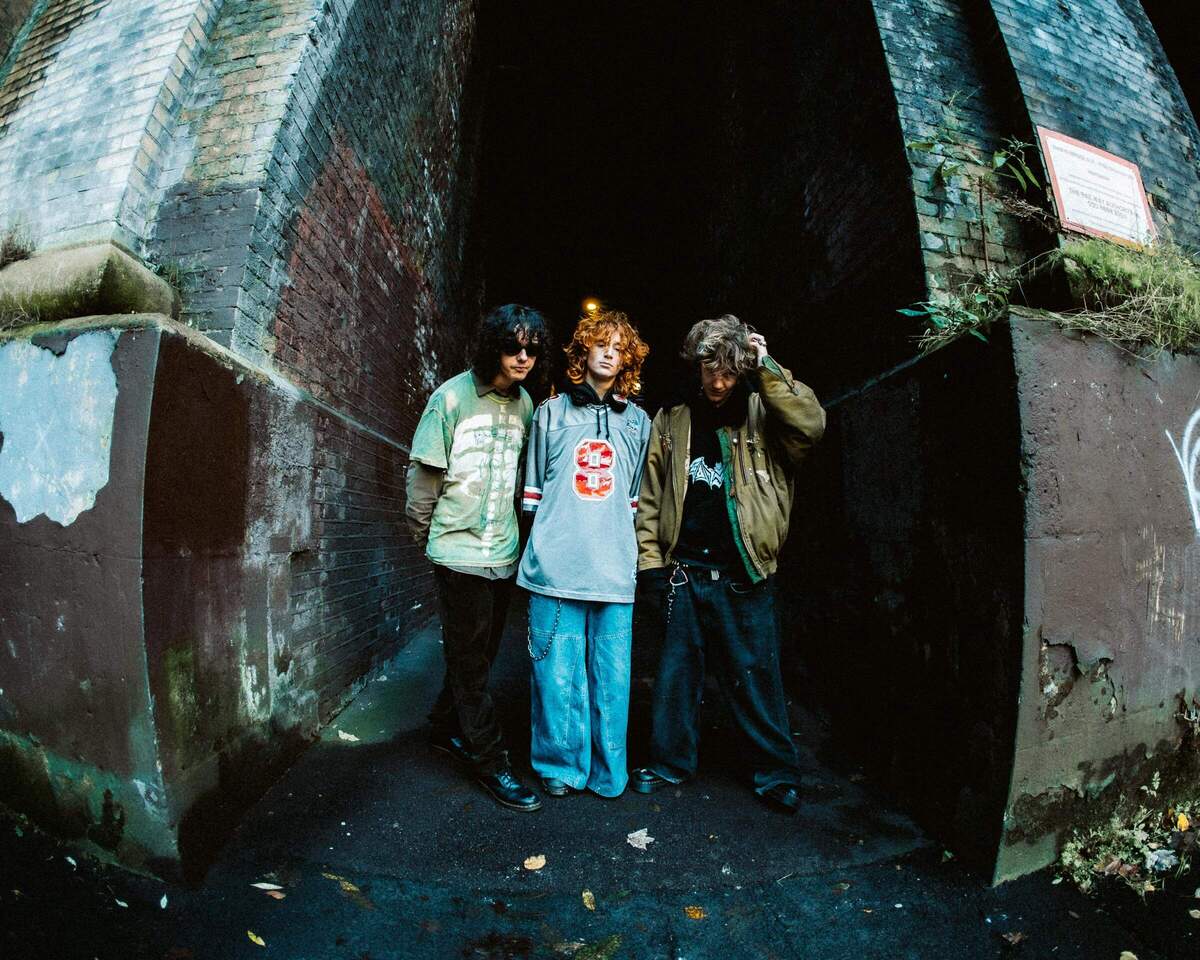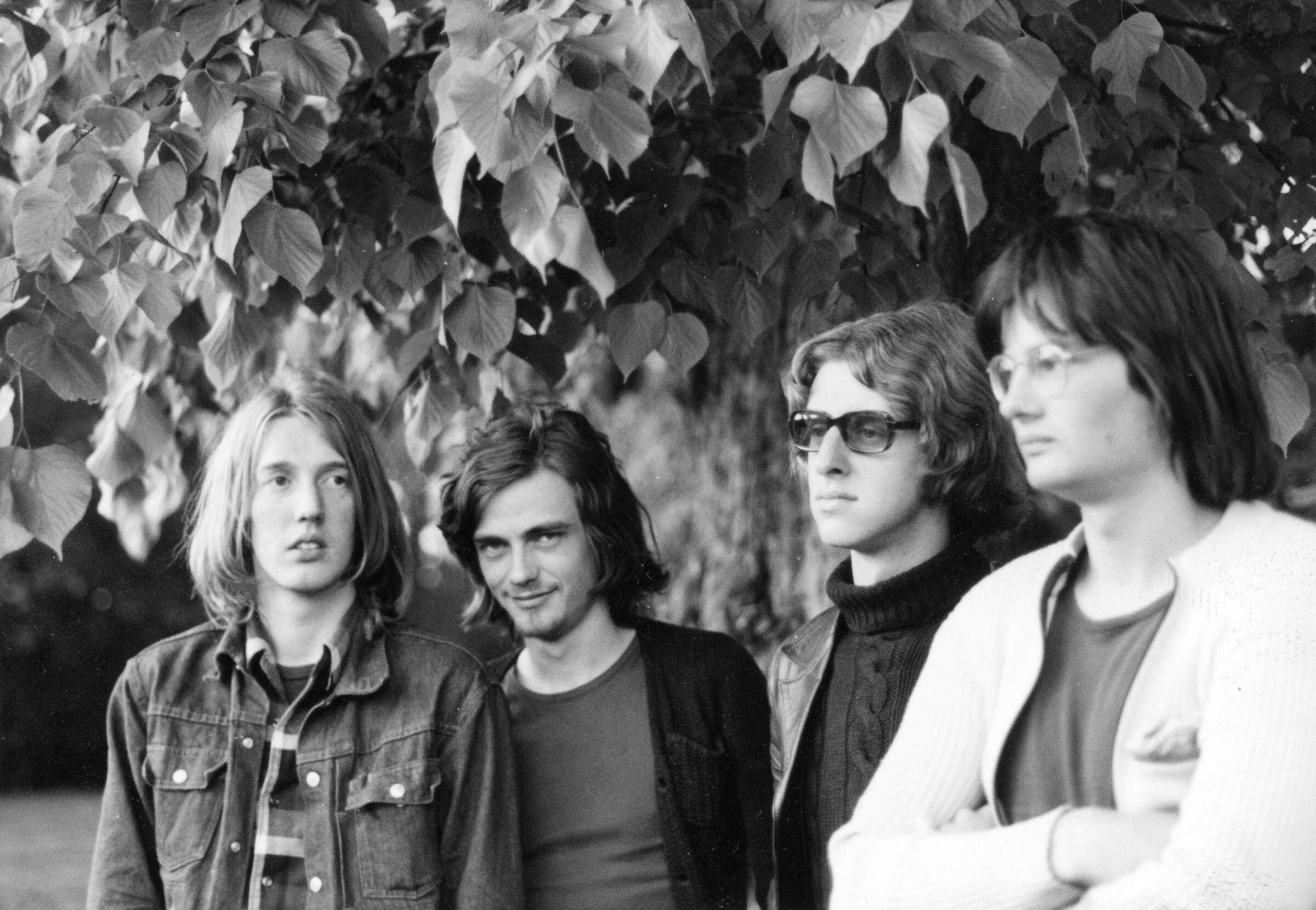The Mayflies USA: Revisiting the Glory Days with ‘Kickless Kids’ – An Interview
Songsmiths, rockers, and road dogs—these phrases could all be used to describe the Mayflies USA, who emerged from Chapel Hill, NC, in 1997.
Boasting three singers and songwriters, and a sound that embraced the likes of Big Star and Teenage Fanclub, the band provided the soundtrack to Friday and Saturday nights for many fans over the next several years.
Their 1999 debut album, ‘Summertown,’ produced by Chris Stamey, still feels like the record that’s been in your collection for years, even if you’re hearing it for the first time. After two more sparkling records, ‘The Pity List’ (2000) and ‘Walking In A Straight Line’ (2002), the band called it a day, worn down by endless touring.
After they reunited for a one-off show in 2012, the band would continue to make occasional appearances until 2024, when work began on their new album. ‘Kickless Kids,’ which bows on longtime home Yep Roc Records on May 16th, feels like a return of old friends—the kind that, until you hear their voice again, you had forgotten how much you missed them. Thankfully, it appears that we won’t have to wait twenty-three years before another album, if the band has anything to say about it.
Matt McMichaels and Adam Price talk about the past, present, and future of the band via email.
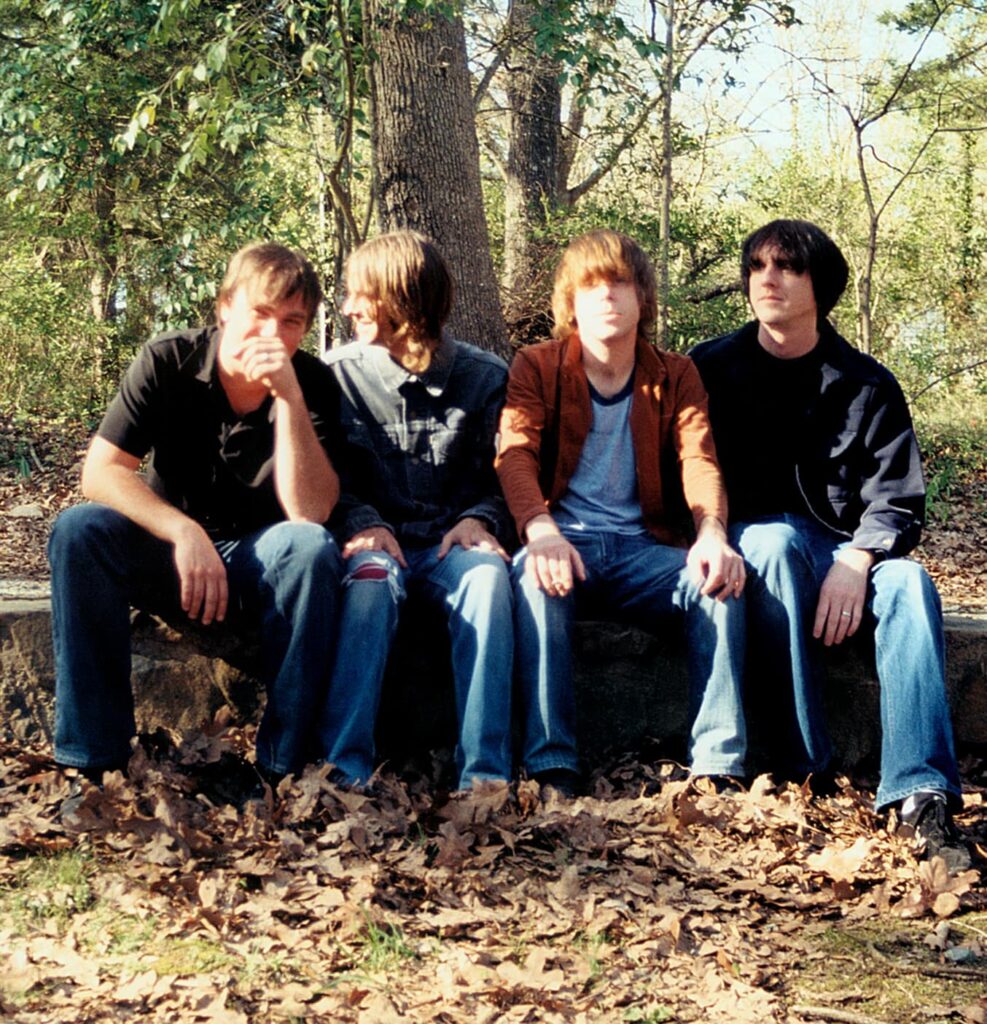
“It was all so exciting and bizarre”
Welcome back! How did this new album come together?
Matt McMichaels: Our guitar player, Matt Long, lives up in Brooklyn, and back in 2022, he came down with a really scary mystery illness that made him realize that, one, he really wanted to record music with us again, and two, it might be now or never. Tim Harper also happened to be building a studio in his garage at the time, and he offered to record us. Tim is a great producer and engineer (he helped mix our first two records with Chris Stamey), and recording with him was really quick and low pressure. Since Matt Long doesn’t live in Chapel Hill anymore, we send voice memos and practice recordings to each other. That way, we are all on the same page whenever Matt comes down to record. We have a routine now where he flies down for a weekend every month or two, and we practice or head over to Tim’s to knock out a few new songs.
How soon after you started playing together again did the songs start to emerge?
Matt: Things moved really quickly once we started playing together again. Adam cranks out new songs constantly, whereas I take a lot longer to write. But the way it has always worked is that we push each other to be productive. It’s not really a competitive thing, but when Adam writes a really good song, my impulse is to say, “Hey, I want to write one, too.” With three songwriters in the band, we always have a ton of songs to work with.
Was there a moment where you said, “This is going to be a new album?”
Adam: I think we had a sense it might be a new album after we recorded the first two songs with our old drummer, David [Liesegang]. Those were the title track, ‘Kickless Kids,’ and ‘LessLost.’ We wound up rerecording ‘Kickless Kids’ later with our present drummer, Tony [Stiglitz], after David had to bow out for personal and health reasons. But I think we knew we had some good songs, and that Tim’s studio (called Tim’s) was the right place to keep recording. The vibe was right with us. We all had come fully back around to playing with each other, and the studio was right, so we knew.
Matt: I would add that Tim’s place is such a comfortable environment to record, so it was just a joy to get together and lay down tracks whenever Matt Long was able to come down from New York. As much as anything, it was an excuse to crack a beer and hang out with our old friends. We knew pretty quickly that we had a bunch of great songs and wanted to make a record.
You worked with some great producers for the previous albums. How did you oversee production on this album?
Adam: Following up on the last question, Tim Harper recorded, mixed, and produced the album. He’s the Connells’ longtime sound guy and producer and an old friend, and he has this studio in the woods in a ramshackle building next to his house. He owns a beer company, too, and brews beer there—there are these huge vats on the first floor of the place. Tim is great and the perfect producer for us at this point. By which I mean, we really needed Chris back in the day to actively help us arrange songs and put things together on tape, but we all kind of know what we’re doing now, and Tim is just the world’s chillest dude, capturing everything. Not that he doesn’t have opinions, but those come out more in the mixdowns, which, due to the magic of the internet (which we did not have the last time we recorded, really), we would receive mixdowns at all hours of the night.
How has presenting your songs, and working on the songs changed since your last album?
Adam: I don’t know if presenting has changed all that much. You bring a song to practice and play it, and people either sort of jump in with a certain amount of eagerness and focus, or they don’t. When the other guys don’t like the song, there’s a kind of mumbled “that’s cool, man.” I should say here that Matt Long, the guitarist, lives in NYC, and in a way, he’s always been a bit of the arbiter of what goes through. He has a good ear for quality, and he can be a little more objective than McMichaels and I can be, as the main songwriters. It’s a good model. Working on the songs, wise, I’d say we just work harder with more attention to detail now. I used to often not really have bass parts worked out or lyrics finished by the time we were recording before, and that’s definitely not the case now.
Matt: Not all living in the same town is, in some ways, better, in that Matt Long can listen to our practice recordings or acoustic demos and decide which ones he wants to pursue. The arrangements and parts end up being more interesting, too, since Matt has time to work out his parts and we have lots of recordings to listen to and refine before we go in and record with Tim. We spend more time working out the details now, rather than just bashing out the songs in the practice room.
“We are having as much fun as ever, and we keep cranking out really good songs.”
How do you work out the harmony parts for your songs?
Adam: I don’t know, Matt and I are just like an old married couple as far as the singing goes. We finish each other’s musical sentences; it’s natural. Matt is a very good high harmony singer, and I have a sort of unusual, gruffer lower voice, and I think they just complement each other in this interesting way. One thing we often do in our arrangements is that I will take over the lead vocal part on Matt’s songs’ choruses, and he will jump to the high harmony, because I can’t do the high harmony. So, there’s this weird trading off of voices that I think is kind of unique in pop/rock music.
Matt: Yeah, Adam and I have just always been able to intuitively sing together. We almost never actually work out our harmony parts; they pretty much emerge fully formed. It’s almost like alchemy, and singing with Adam is one of my favorite parts of being in the Mayflies.
What themes emerged in the writing for this album?
Adam: I think unsurprisingly, there’s a lot of stuff about getting older. The song ‘Kickless Kids’ is most directly about that, about looking back at your youth from further along, but there are nods throughout. But also, we didn’t write all these songs in the same recent period—they’re more new than not, but I would say there’s a twenty-five-year span represented. I wrote ‘Come on Down’ around when we were recording ‘The Pity List,’ which we demoed it for, but we hadn’t found the right approach and it didn’t make the cut. I think the next record, which we are currently writing and arranging, will probably be a lot more thematically unified, as most of the songs will be from within the last year or two.
How has your songwriting changed since the last Mayflies record?
Adam: I think we’re better songwriters. We used to lean more heavily on just rocking out—we still have that gear—but I think we’ve mellowed a little on that front. Now, if a song is going to make the cut, it has to stand on its own merits. Our first three albums had plenty of very good songs (in my opinion), but also a number of okay-ish songs that made it simply because they rocked so hard live. I just think we’re better than we were. You hope to keep getting better at the art you practice, right? I don’t see why that shouldn’t be true of rock songwriting. And we have the built-in advantage of having to pass muster with each other. I think solo or lead artists are more vulnerable to starting to suck as they age because there’s no one there to laugh at their cringe stuff. We definitely have that vetting system in place.
Matt: We’re also more willing and able to branch out into different tempos and time signatures than we used to be. We can take more chances now that we’re older and better players, and we’re not as concerned with trying to write a hit or whatever. Rock music is such a niche genre now—like jazz or something—so there’s no reason for us to limit ourselves.
I’ve seen several of the Mayflies reunion shows over the years and have always felt that the Mayflies story was never finished. What has meant the most to you about working on this new album?
Adam: I think we felt the same way. Our career, such as it was, always felt like it was on the cusp of happening. We had lots of people telling us we were going to be big, and it didn’t happen. We kind of burned out in all the predictable ways. Despite that, we always knew we had something special. A great band—as I immodestly believe we are—is more than the sum of its parts. There’s something about Matt and my vocals, and Matt Long’s guitar, that’s timeless and signature. And I don’t think we ever felt like we’d exhausted that. It’s really special to be getting this second chance.
Matt: Yeah, it’s just so cool that we still get to play music together and that Yep Roc is willing to release it. I feel so lucky that we’re all still friends and still really enjoy playing and recording.
Talk about the Triangle scene that you all came up in during the 1990s. It was a remarkable time to listen to—and be a part of—all that music.
Adam: It was a remarkable time, with lots of great bands. But I think we were actually a little cloistered during it. We felt like a street gang or something—we spent all our time together playing music and getting messed up. We had a chip on our shoulder that’s a little funny to look back on. I’d probably do it differently now, but that’s my forty-something self talking. The music scene was so odd at that moment—when we came along in ‘96, all the big Chapel Hill bands were kind of splintering or disbanding, and there were just a lot of skronky, post-sub-Polvo atonal math-rock bands that I really couldn’t stand. I still think they kind of sucked, although the parties and shows were fun to go to. We always just sort of did our own thing.
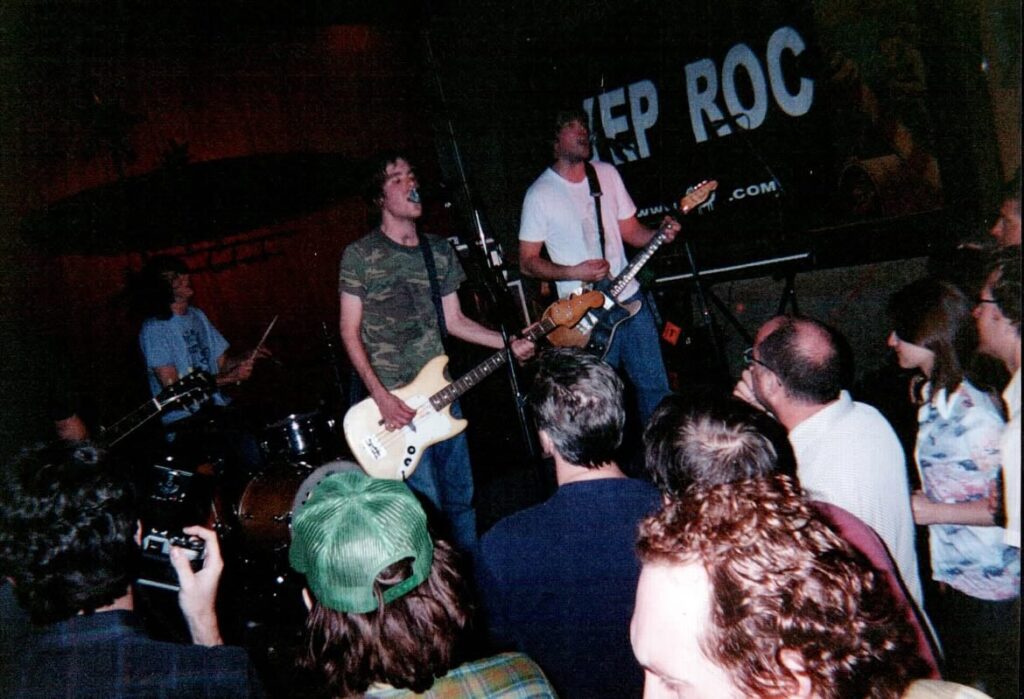
Did you have any favorite shows or tours during that first era for the band?
Adam: The first time we went down to Florida was a lot of fun. We toured there a lot because it was easy to get shows—no one wanted to (or maybe still wants to) go to Florida. We were in Matt’s white Econoline van (Ronnie Band Van), and I was maybe 22 or 23. It felt very cool—exactly what I wanted to be doing. Funny though, I have a vivid memory of rolling up to the Moto Lounge in Jacksonville for maybe our first show there, getting out of the van, and being greeted by the club’s (as we later learned) famously dickish owner, who said, “You must be the Gay Guys USA.” So that was an eye-opener.
We also got to open for Archers of Loaf on some of their Speed of Cattle tour stops, early in our career, which was a lot of fun. We played around 350 shows during those years, but due to a combination of age, distance of years, and the substances we were doing at the time, I only have pieces of memories from all over the place. Getting electrocuted by the mic at a club in Memphis with water on the floor. Playing this amazing steakhouse-turned-club in Jackson, Mississippi and hanging out with Mike Mills, who was in town for his daughter’s soccer game. Playing insanely drunk in Denver after the bartender warned us not to drink more than two beers due to the altitude—we drank more than two beers. Wandering around Eureka, California after a weird show at a bowling alley. Being in a rock band is a pretty great way to be young.
Matt: It was all so exciting and bizarre. We got to play with The Flaming Lips at an outdoor show in Nashville. We shared the stage with the ‘80s hair band Night Ranger at a rib festival in Raleigh. We played foosball with Sean Lennon—he cheated. Elliott Smith used to watch us play at Luna Lounge in Manhattan. It’s all a blur now, but those were heady times.
“I have a bandmate who casually drops T.S. Eliot references in his lyrics. I would assume that’s pretty rare.”
With more than one writer in the band, how did you all push each other as songwriters back then? And did that process change in writing this album?
Adam: I’ve sort of already answered this, but I think we were more competitive back then. I remember I used to care quite a bit if I had the most songs, or the first song on the album, that kind of stuff. I really don’t care now. I love Matt’s songwriting, and I feel privileged to get to be in a band with one of my favorite songwriters. I will say, I do think he still pushes me in terms of craft — he’s a really excellent, careful lyricist, for example, and I’ve had to step my lyric game up to try to keep up with his stuff.
Matt: I feel the same. Adam was like 18 or 19 when we met, and he was initially just going to be the bass player in the Mayflies. But it was immediately obvious how quickly and easily he could write a catchy song, so I was more than happy to just let him cook. I think we have all learned a lot from each other in terms of songwriting, and I am a huge fan of Adam’s songs. I have a bandmate who casually drops T.S. Eliot references in his lyrics. I would assume that’s pretty rare.
What are the future plans for the band?
Adam: The album we’re writing and about to spend a long weekend rehearsing and arranging, with Matt Long down from New York. We’ll start recording that this year and hopefully have it in the can next year. As far as I’m concerned, the plans are to keep writing, arranging, and recording good rock songs indefinitely, because it’s fun and we have a small but devoted listenership, and why would we stop? If/when we do have to, because of circumstances of whatever kind, I want to feel like we left behind a real catalogue of material that fans of this kind of music will have to enjoy.
Matt: We are having as much fun as ever, and we keep cranking out really good songs. We already have at least an album’s worth of new songs, so I hope we can keep doing this until we are physically unable to keep going.
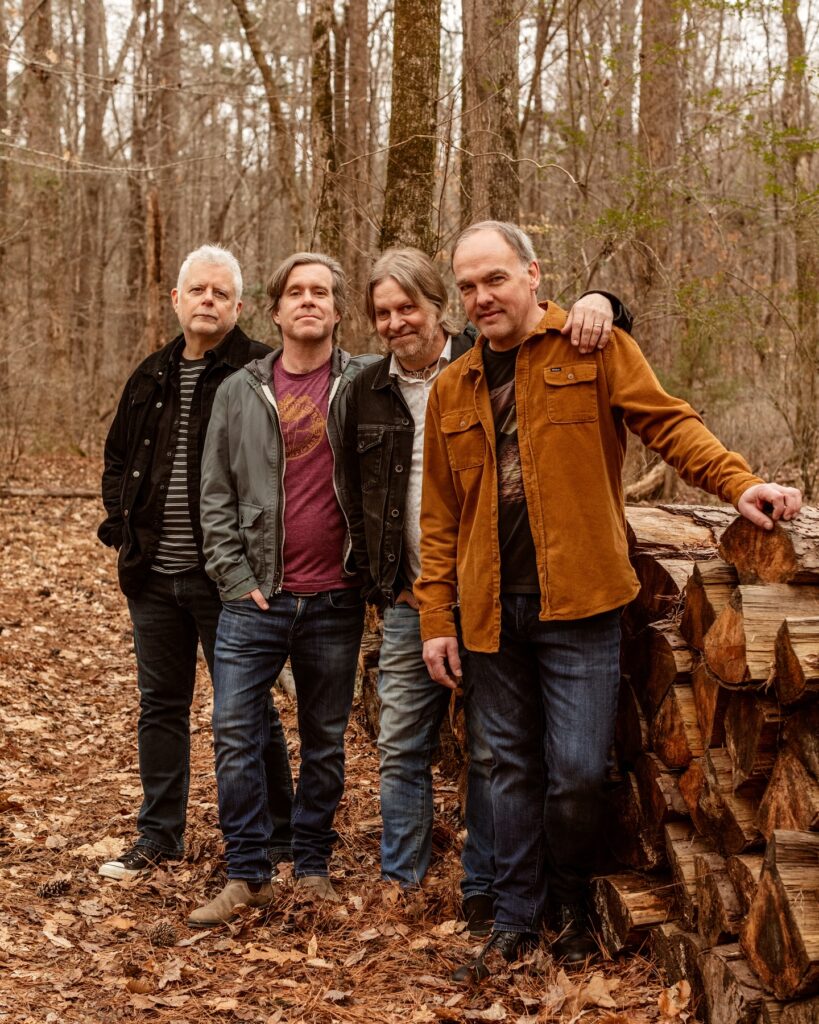
Some of us (myself included) have been a fan of your music for a very long time. What does it mean to have people follow this band for so long?
Adam: I think we’d do it purely for our own pleasure, because getting a new song together with these guys remains one of the most enjoyable experiences there is, but it’s, of course, hugely gratifying to see people responding to it, especially folks who have been around for the whole arc of the band. I think back in the day we really hoped we could make a career out of it, but at this point, all we care about is getting the music in front of as many people as we can.
Daniel Coston
Headline photo: Jeremy M Lange
The Mayflies USA Linktr / Facebook / Instagram / X / YouTube / Bandcamp
Yep Roc Records Website / Facebook / Instagram / X / YouTube / Bandcamp

